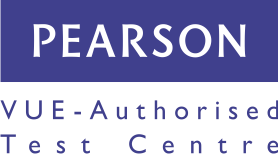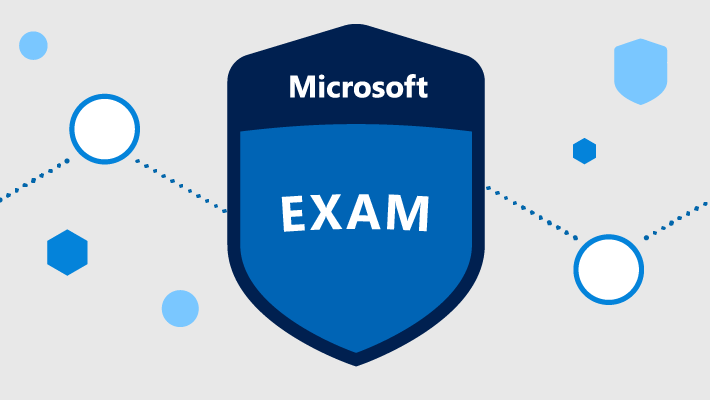O tym kursie
In this course, the students will implement various data platform technologies into solutions that are in-line with business and technical requirements, including on-premises, cloud, and hybrid data scenarios incorporating both relational and NoSQL data. They will also learn how to process data using a range of technologies and languages for both streaming and batch data.
The students will also explore how to implement data security, including authentication, authorization, data policies, and standards. They will also define and implement data solution monitoring for both the data storage and data processing activities. Finally, they will manage and troubleshoot Azure data solutions which includes the optimization and disaster recovery of big data, batch processing, and streaming data solutions.
Profil odbiorcy
The primary audience for this course is Data Professionals, Data Architects, and Business Intelligence Professionals who want to learn about the data platform technologies that exist on Microsoft Azure.The secondary audience for this course is individuals who develop applications that deliver content from the data platform technologies that exist on Microsoft Azure.
Job role: Data Scientist
Preparation for exam: DP-200
Features: none
This module explores how the world of data has evolved and how cloud data platform technologies are providing new opportunities for businesses to explore their data in different ways. The students will gain an overview of the various data platform technologies that are available and how a Data Engineer's role and responsibilities has evolved to work in this new world to an organization's benefit.
Lessons
Lab : Azure for the Data Engineer
After completing this module, students will be able to:
This module teaches the variety of ways to store data in Azure. The students will learn the basics of storage management in Azure, how to create a Storage Account, and how to choose the right model for the data want to be stored in the cloud. They will also understand how Data Lake storage can be created to support a wide variety of big data analytics solutions with minimal effort.
Lessons
Lab : Working with Data Storage
After completing this module, students will be able to:
This module introduces students to Azure Databricks and how a Data Engineer works with it to enable an organization to perform Team Data Science projects. They will learn the fundamentals of Azure Databricks and Apache Spark notebooks; how to provision the service and workspaces; and how to perform data preparation task that can contribute to the data science project.
Lessons
Lab : Enabling Team Based Data Science with Azure Databricks
After completing this module, students will be able to:
In this module, students will learn how to work with NoSQL data using Azure Cosmos DB. They will learn how to provision the service, how they can load and interrogate data in the service using Visual Studio Code extensions, and the Azure Cosmos DB .NET Core SDK. They will also learn how to configure the availability options so that users are able to access the data from anywhere in the world.
Lessons
Lab : Building Globally Distributed Databases with Cosmos DB
After completing this module, students will be able to:
In this module, students will explore the Azure relational data platform options, including SQL Database and SQL Data Warehouse. The students will be able explain why they would choose one service over another, and how to provision, connect, and manage each of the services.
Lessons
Lab : Working with Relational Data Stores in the Cloud
After completing this module, students will be able to:
In this module, students will learn the concepts of event processing and streaming data and how this applies to Events Hubs and Azure Stream Analytics. The students will then set up a stream analytics job to stream data and learn how to query the incoming data to perform analysis of the data. Finally, they will learn how to manage and monitor running jobs.
Lessons
Lab : Performing Real-Time Analytics with Stream Analytics
After completing this module, students will:
In this module, students will learn how Azure provides a multi-layered security model to protect data. The students will explore how security can range from setting up secure networks and access keys, to defining permission, to monitoring across a range of data stores.
Lessons
An introduction to security
Key security components
Securing Storage Accounts and Data Lake Storage
Securing Data Stores
Securing Streaming Data
Lab : Securing Azure Data Platforms
An introduction to security
Key security components
Securing Storage Accounts and Data Lake Storage
Securing Data Stores
Securing Streaming Data
After completing this module, students will:
Have an introduction to security
Understand key security components
Understand securing Storage Accounts and Data Lake Storage
Understand securing Data Stores
Understand securing Streaming Data
In this module, the students will get an overview of the range of monitoring capabilities that are available to provide operational support should there be issue with a data platform architecture. They will explore the common data storage and data processing issues. Finally, disaster recovery options are revealed to ensure business continuity.
Lessons
Lab : Monitoring and Troubleshooting Data Storage and Processing
After completing this module, students will be able to:
In addition to their professional experience, students who take this training should have technical knowledge equivalent to the following courses:
Firma jest Autoryzowanym Ośrodkiem Szkoleniowym MICROSOFT Silver Learning
Możesz u nas podejść do egzaminu Pearson VUE
Spółka posiada wpis do ewidencji placówek niepublicznych Nr ew. ES.VIII.4320-6/p.n./2003 wydany z upoważnienia Prezydenta Miasta Łodzi
 |
 |
Zachęcamy do skorzystania z możliwości dofinansowania szkoleń oferowanych przez naszą firmę. Dostępne rozwiązania:
Skontaktuj się z nami, aby uzyskać więcej informacji. Oferujemy pełne wsparcie w tym procesie.
Zapraszamy!
|
|
|
Przewidziany egzamin do szkolenia: DP-200
Zapisz się na egzamin już dzisiaj! Kontakt do Centrum Egzaminacyjnego: it@ntg.pl tel: 502 147 093 lub zapisz się przy pomocy formularza.


Najbliższy termin: Prosimy o kontakt
Najbliższy termin: Prosimy o kontakt
Najbliższy termin: Prosimy o kontakt
Najbliższy termin: Prosimy o kontakt
Najbliższy termin: Prosimy o kontakt
Najbliższy termin: Prosimy o kontakt
Najbliższy termin: 27-03-2025 09:00
Najbliższy termin: 27-02-2025 09:00
Najbliższy termin: 25-02-2025 09:00
Najbliższy termin: 21-03-2025 09:00
Najbliższy termin: Prosimy o kontakt
Najbliższy termin: Prosimy o kontakt
